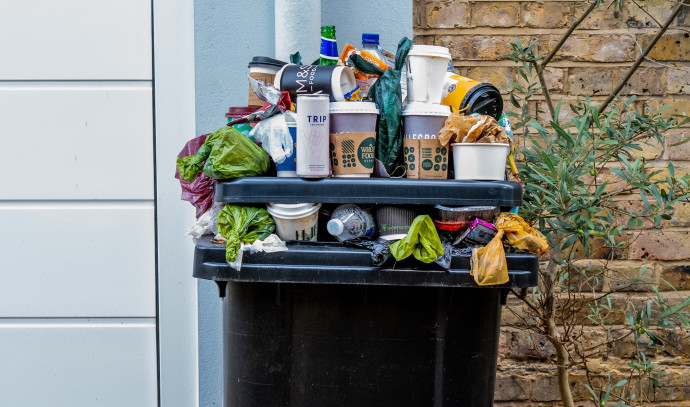The first time I wrote about climate change must have been 20 years ago. Those were the days when companies wrote about corporate social responsibility, or CSR, which then moved on to sustainability; then the environment, social, and governance reporting; and now it’s all about climate and society. I was living in London at the time when British companies were leading the CSR trend, and I honestly thought I’d seen it all.
There were definitely companies out there that were following the trend for “greenwashing” and trying to capitalize on environmental awareness for PR purposes. But there were also companies that were developing incredible technologies with the potential to make a difference.
Now I’m living in Israel, and there is increasing public awareness that climate change-related challenges like droughts, water shortages, and forest fires are becoming a reality in Israel and in the rest of the world. These challenges impact health, food sources, drinking water, biodiversity, energy, and infrastructure – virtually every aspect of our lives.
There’s an accompanying trend for start-ups here not just to focus on the “next big thing” but to try to tackle one of the challenges facing our world today. I thought I must have covered most of the successful or promising climate-related start-ups from Israel in my earlier columns, but I keep hearing about more and more – and I am continuously amazed by the potential I see.
At the end of May, the UK-Israel Climate Network was launched, bringing together visionaries from my two homes. The network is a collaborative initiative by UK-Israel Business and the Tel Aviv-based Climate First accelerator, which supports early-stage companies that they believe can make a significant environmental impact. This collaboration aims to foster closer working ties between the two countries, creating a platform for sharing ideas and opportunities to tackle climate challenges while potentially making money at the same time. I call it “doing good while doing business.”
The first UKICN ClimateTech Delegation to London was hosted at the end of June at the House of Lords by Lord Ian Austin, the UK government’s trade envoy to Israel, at an event entitled Bridging Innovation for a Sustainable Future. Ten Israeli companies were chosen to meet experts in the UK’s climate ecosphere, as well as leading UK executives, investors, and policymakers.
The network describes these companies as the “most cutting-edge climate tech growth companies,” each addressing various climate challenges such as generating clean energy, resource sustainability, efficiently storing hydrogen, and advancing environmental monitoring. The companies tackle issues from large-scale carbon capture to innovative waste management, developing eco-friendly materials, and supporting healthier oceans. The network says the companies were chosen for their management talent, decarbonization potential, funding, and commercial prospects, as well as their “groundbreaking technologies.”
So what were the 10 companies chosen? Here’s a quick rundown.
Producing clean energy
- Zohar CleanTech: Their waste to energy technology, ZoharX, is all about converting unsorted residential waste – i.e., the contents of your typical trash can – into clean energy. The process is decentralized and carried out on site, avoiding transport-related greenhouse gas emissions or sending trash to landfill. Some 80% of household waste is reportedly converted into energy, turning home trash into treasure.
- Luminescent: A study from Yale University’s School of the Environment suggests that around 70% of all man-generated energy is squandered as waste heat. Luminescent’s focus is on recovering as much of this waste as possible, converting waste heat into clean energy. Their unique technology reportedly uses a liquid-based isothermal heat engine to generate efficient, cost-effective and zero-emission electricity.
- QD-SOL: Hydrogen, the H in H20, has huge potential as an energy source, but “green” hydrogen is traditionally expensive to produce. QD SOL says it’s taking green hydrogen to the next level, however, using solar panels to generate hydrogen directly from sunlight. They say the process is free from carbon emissions and is more cost effective than other methods.
- Hydro X: This one is all about green hydrogen storage. Traditional hydrogen storage uses up a lot of energy, and it depends on toxic, flammable, and explosive materials. Hydro X say they have developed a way of storing and transporting hydrogen in an energy-efficient, cost-effective, non-toxic, non-flammable, and non-explosive carrier.
Greener materials
- Helios: The company began as a space company, developing technologies to separate oxygen from metals used on the moon, to provide essential on-site oxygen. They then developed a new method for producing iron from iron ore, using only thermal energy and emitting only oxygen. The company says that their green steel technology uses less power, reduces operating costs, and has the potential to decarbonize an industry that is responsible for 10% of global emissions.
- Criaterra: Their patented Bio-Geo Agglomerated Stone Technology creates products for construction such as cladding, blocks, and tiles, using regenerative and recyclable materials. The company says their products are as strong as concrete and provide six times as much insulation, while reducing energy consumption by 90% and carbon emissions by 80%.
- Daika: This company uses wood waste to produce high-end products that can rival other materials, such as plastics. They say they do this in a low-energy, no-waste process, and the result is a 100% natural wood-based product that retains the unique, warm and acoustic properties of wood. The products can also be further processed into timber.
Reducing emission levels
- Momentick: They use advanced computer vision for advanced environmental monitoring. This involves identifying and quantifying methane and other greenhouse gas emission levels, they say “on a planetary scale.” The idea is that this monitoring can help other companies meet their regulatory and environmental obligations and significantly reduce their carbon footprint.
- NakAI: They aim to contribute to a healthier ocean ecosystem, using innovative technology to efficiently clean and inspect vessels, helping to lower emissions from the shipping industry. Using an autonomous robot to clean ships’ hulls, this helps ship owners to remove and prevent the buildup of slime and biofouling, thus preventing the spread of invasive aquatic species and enabling ships to improve efficiency, while improving marine life protection.
- GigatonBlue: This company uses natural processes to feed micro algae in the ocean, which absorb carbon from the atmosphere. As they grow and get heavier, the micro algae sink to the ocean floor, taking the carbon with them and, reportedly, storing it there for thousands of years. GigatonBlue is now hoping to commercialize this, selling carbon credits to companies – and even countries – to help them offset their carbon emissions.
Ori Shaashua, co-founder of GigatonBlue, explained: “Carbon removal to get to net zero would need negative emissions on a mass scale. There is no way the world will get to net zero just by avoiding emissions; they need to be removed.”
What do the 10 companies have in common?
Guy Cherni, co-founder and managing partner of Climate First, summed up the delegation by saying the 10 companies are “a testament to the incredible innovation and determination exhibited by these Israeli climate tech growth companies,” suggesting they can help drive us toward a “more sustainable future.”
President Isaac Herzog addressed the event, saying that the urgency of climate change presents “a challenge that transcends national borders, political ideologies, and generations.” He also highlighted the potential of the UK and Israel working together: “Our partnership, rooted in long-standing relations and mutual respect, is a dynamic conduit for pooling our collective expertise and resources,” he said. “Together, let us face the challenges ahead with unity, strength, and determination.”
As someone living in Israel who hails from the UK, I’m all for deepening ties between the two countries I call home. And if that can make the world a little greener and safer in the process, all the better.
The writer is Middle East Correspondent for India’s WION (World Is One) TV news channel. The author of Tikkun Olam: Israel vs COVID-19, she has helped numerous multinationals report on their contributions to tackling the UN’s Sustainable Development Goals. On Twitter: @JodieCohen613 .



